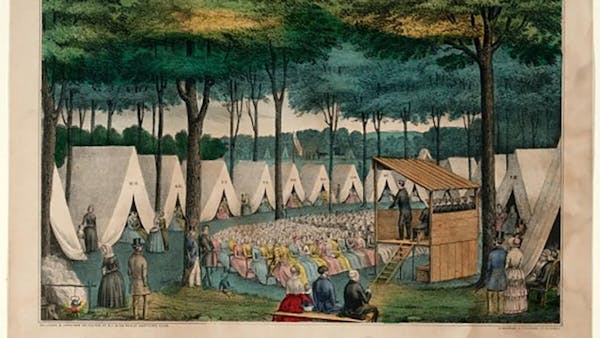WILLIAM MILLER: THE EARLY YEARS
The warm orange glow from the fireplace bathed the quiet room with light and warmth. Young William Miller lay on his torso, feet in the air, tucked as close to the fireplace as possible leafing through the pages of a well-worn book. This had become a little bit of a routine for him. He was obsessed with reading but growing up on a farm as the eldest of 16 children meant that he had precious little time to spend with his books.
His parents were deeply spiritual members of the local Baptist church and his grandfather and uncle were both Baptist ministers. Their home, a modest farmer’s dwelling in Low Hampton, New York boasted three books. A Bible, a psalter and prayer book. After William had read over and over again he began to forage for other reading material. Soon he was scouring neighbours homes in search of any books he could lay his hands on. He read anything and everything he could find.
In order to keep up the pace of his reading, William began to read well into the night after his entire family had gone to bed. He would collect pine knots during the day, whittle them down to just the right size and stash them away in a special hiding place he had secured for himself. Then at night when silence wrapped its arms around the sleeping Miller homestead, William would quietly pick his way down the stairs and into the living room. Using his stash of pine knots he would get the fire going and then sit huddled by it drinking the warmth and the words of the pages he poured over.
Despite his love for reading and the daily round of farm work to take up his time William found growing up in Low Hampton to be a lonely and isolating experience. One summer William found a job in Poultney, Vermont which was a few miles away and while there he met Lucy Smith. Suddenly he began to find every excuse he could think of to run down to Poultney and Lucy found herself as eager for him to come. They married not long after and set up home in Poultney which, to William’s delight had a decent public library.
The library soon became William’s second home and his appetite for reading began to become voracious. For her part, Lucy quite liked the idea of her farm boy gaining the kind of mental culture that reading offered and she encouraged William’s habit as much as she could, even taking on more than her fair share of work on the farm just so he could immerse himself in his reading.
William began to assimilate the thought leadership and philosophical leanings of men like Voltaire, Hume, and Paine and soon found himself adopting Deism as a worldview. The idea of a distant, disinterested God, who like an ancient watchmaker thoughtfully and intelligently wound up the world and then gently left it to wind down on its own steam satisfied the need for both intelligent design and humanistic reasoning.
William soon found a group of Deists in Poultney and opened his home to them, hosting them every chance he got and slowly drawing on their ideas to sharpen and hone his own. This led him to reject the Bible as a book of fables slapped together by a bunch of artful men. He soon had little time or interest for anything that smacked of Christianity.
And then he got drafted into the army. Called upon to render his services to his country as Captain William Miller of the Vermont Militia in the revolutionary war of 1812. Little did Captain Miller realise what a pivotal moment the war would be, not only in the history of America but also in his own personal history as well.

